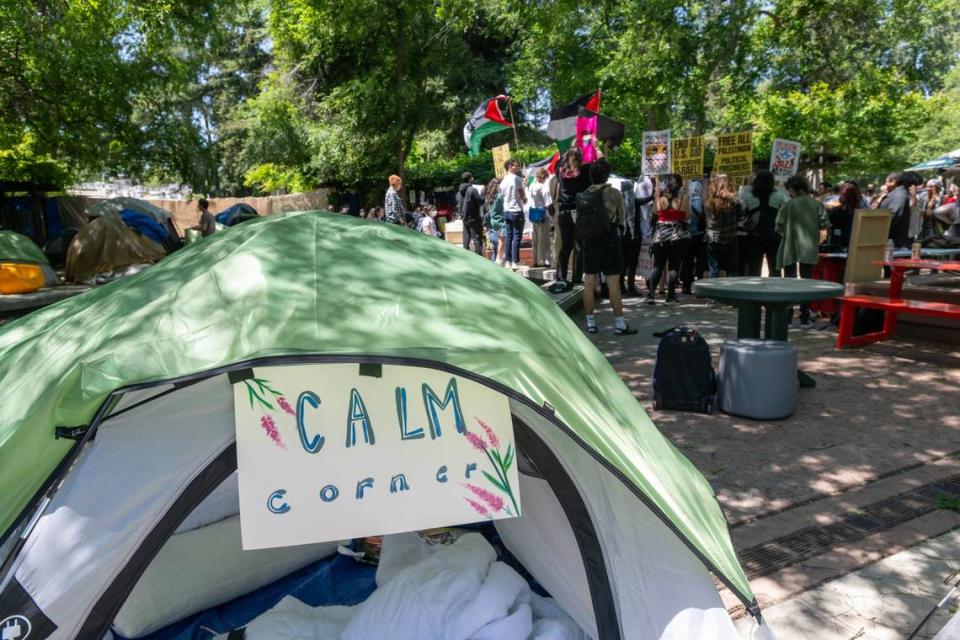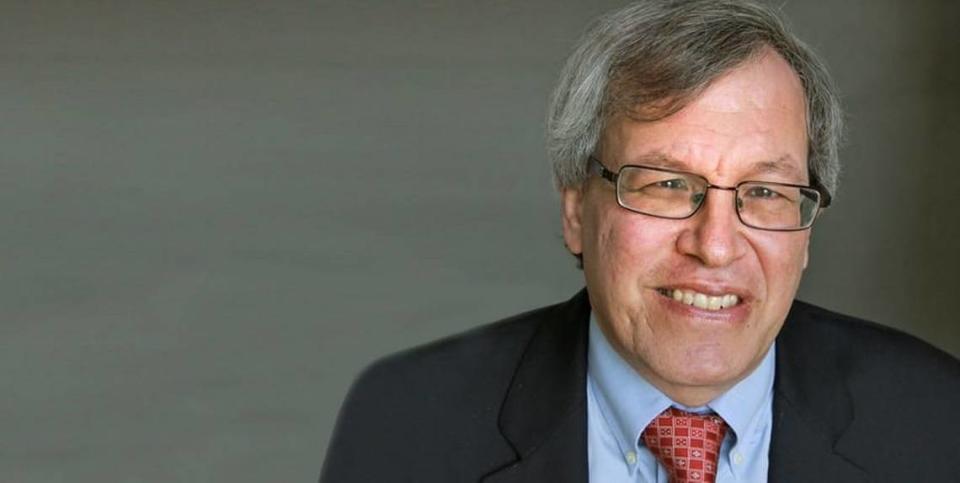Addressing illegal campus protests is requiring officials to use a lot of politics | Opinion
For decades, I have been teaching and writing about First Amendment law, leading me to look at the issues of free speech on college campuses primarily as being legal questions about what is allowed, when and where. Yet, the events in recent weeks on campuses, including my own in Berkeley, have caused me to realize something new. The choices for campus administrators are less about the law and more about what is pragmatically and politically desirable.
The problem that campuses have faced over the last month is how to deal with speech that unquestionably violates clearly constitutional rules. The encampments at every school violate long-standing, essential campus rules that meet the requirements for a constitutionally permissible time, place, and manner restriction. Campuses lawfully may order the end of the encampments, use law enforcement to accomplish this, and arrest and discipline those who disregard the orders.
The question for campus administrators therefore is not one of what the First Amendment allows, but of pragmatically what is desirable. The same holds true for commencements interrupted by protests.
I have repeatedly heard students say that since their cause is justified, it is permissible for them to engage in behavior that is disruptive and that they should not be punished because they are engaged in civil disobedience. It is frightening to hear students embrace the idea that the ends justify the means and that they have the right to violate the law and rules because they feel morally justified. And somehow they missed that civil disobedience means accepting the consequences of violating the law.
The events of the last month have caused me to realize that by focusing so much on the law, there has not been enough attention to the pragmatic considerations that should guide decisions. College administrators are facing some key questions.
How much is the activity disrupting the campus and its educational and research mission? Some encampments are small or in areas of campus that do not interfere with its functioning. But others have been large and very disruptive. Some encampments, for example, are where commencement ceremonies were scheduled and had to be cleared in order for commencement to happen.
How great is the risk of violence and destruction of property? Campuses have a duty to protect the safety of those in the community. The First Amendment never includes a right to endanger others or destroy property. There are situations where the presence of protests and counter-protests creates too great a danger of escalation into violence. A campus cannot wait until the violence occurs to take action.
Is the activity a violation of the law or a violation of campus rules? There is a difference between criminal conduct, such as engaging in threats or destruction of property, and violation of campus rules. Campuses generally will want their response to take into account the seriousness of the actions.
How much is there harassment? Schools also have a legal and moral duty to prevent students from being harassed based on their race, religion, ethnicity, sex, and sexual orientation. At some schools, those in the encampments have harassed Jewish students going by or refused to allow them to enter certain areas of the campus. That cannot be tolerated. But at other campuses, the encampments have posed little problem in this way.
These considerations often point in conflicting directions as to what to do. Campus officials must make these judgments knowing that whatever they do will be criticized, for not doing enough or for doing too much. And the criticism often will come simultaneously from both sides.
Of course, the law of the First Amendment must be the starting point and must be adhered to, for public universities and for private schools that choose to follow it. But we also must realize that it is often just the starting point and do a better job of thinking through how to apply it and what to do in these enormously difficult circumstances.
Erwin Chemerinsky is dean and professor of law at the UC Berkeley School of Law.


